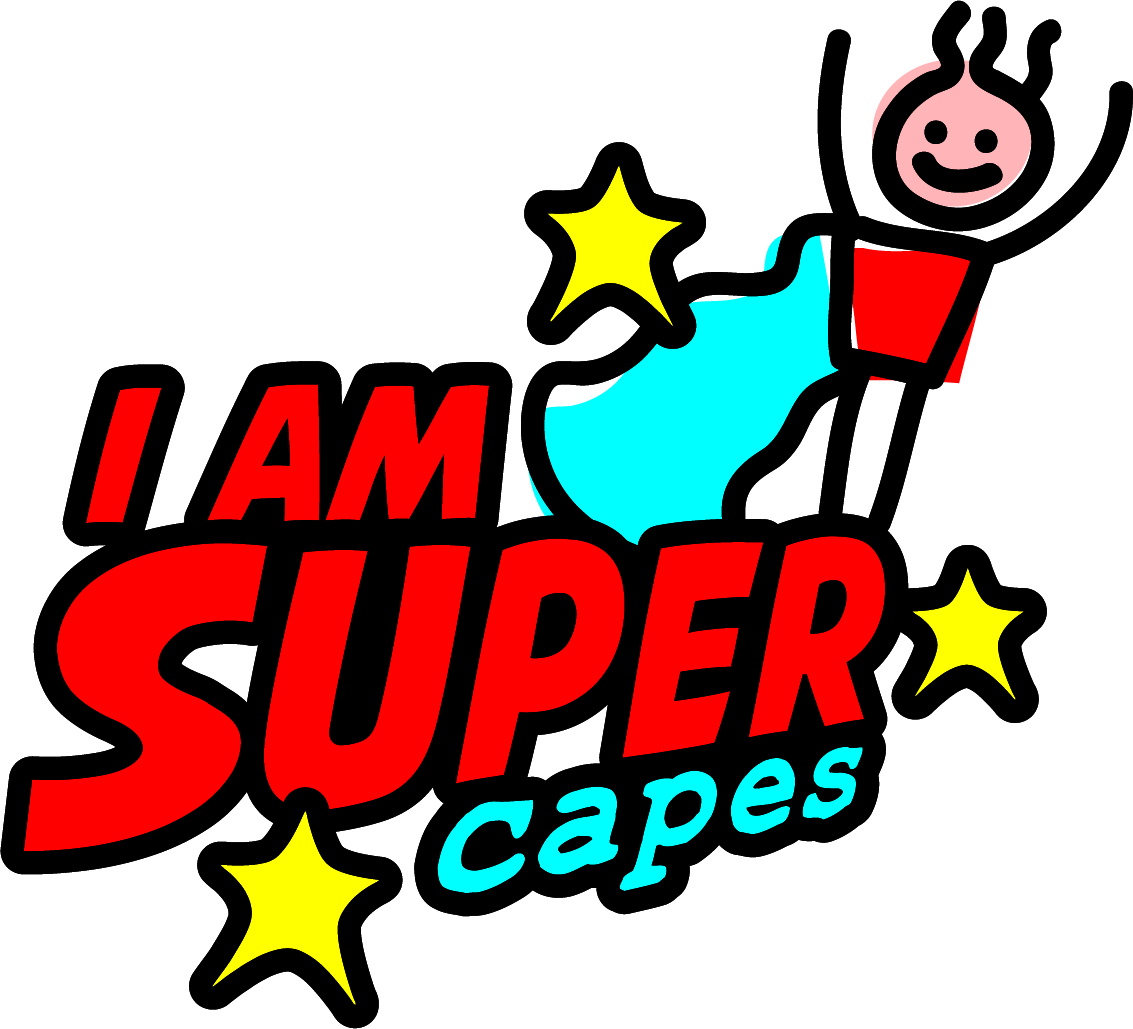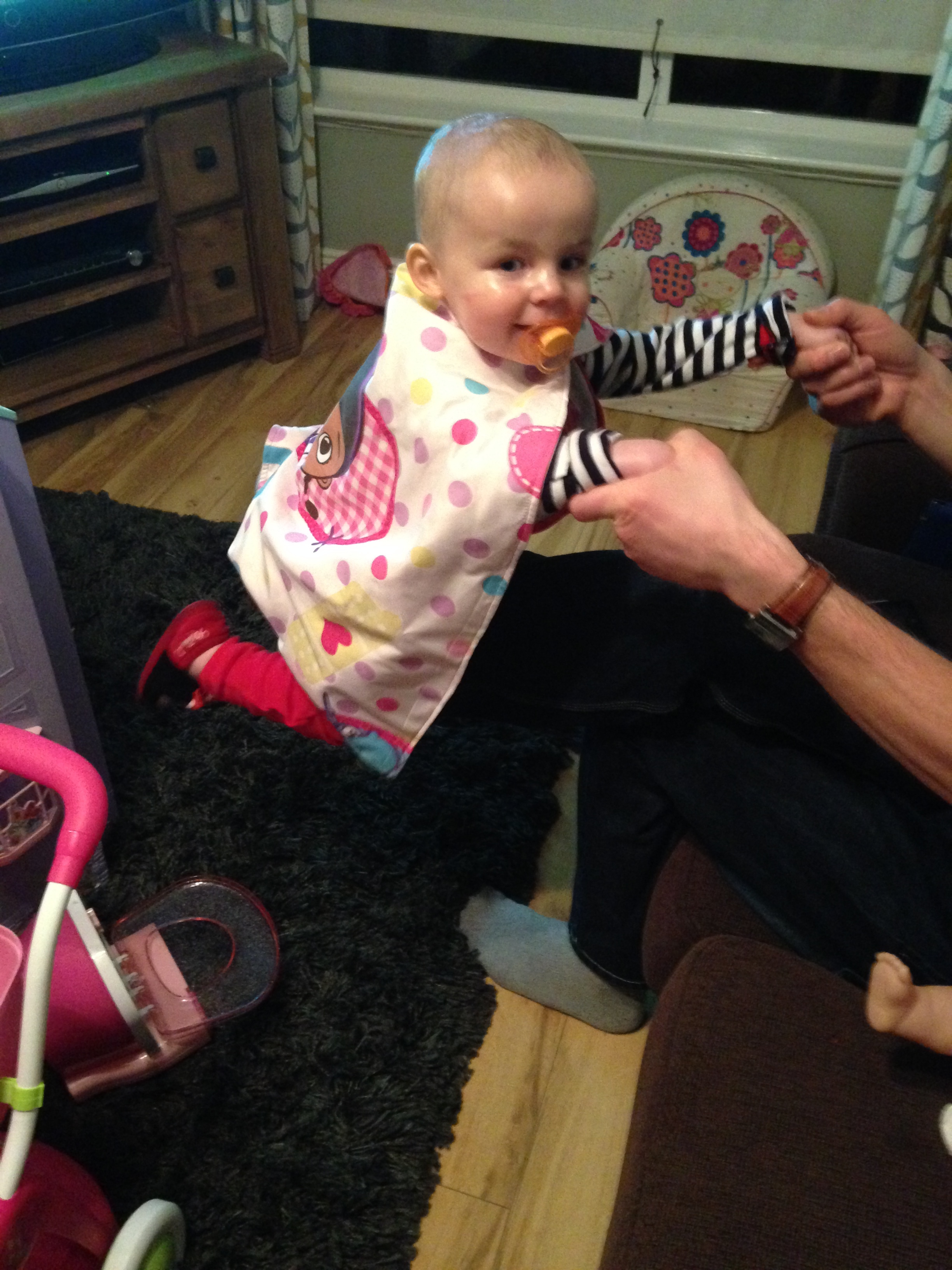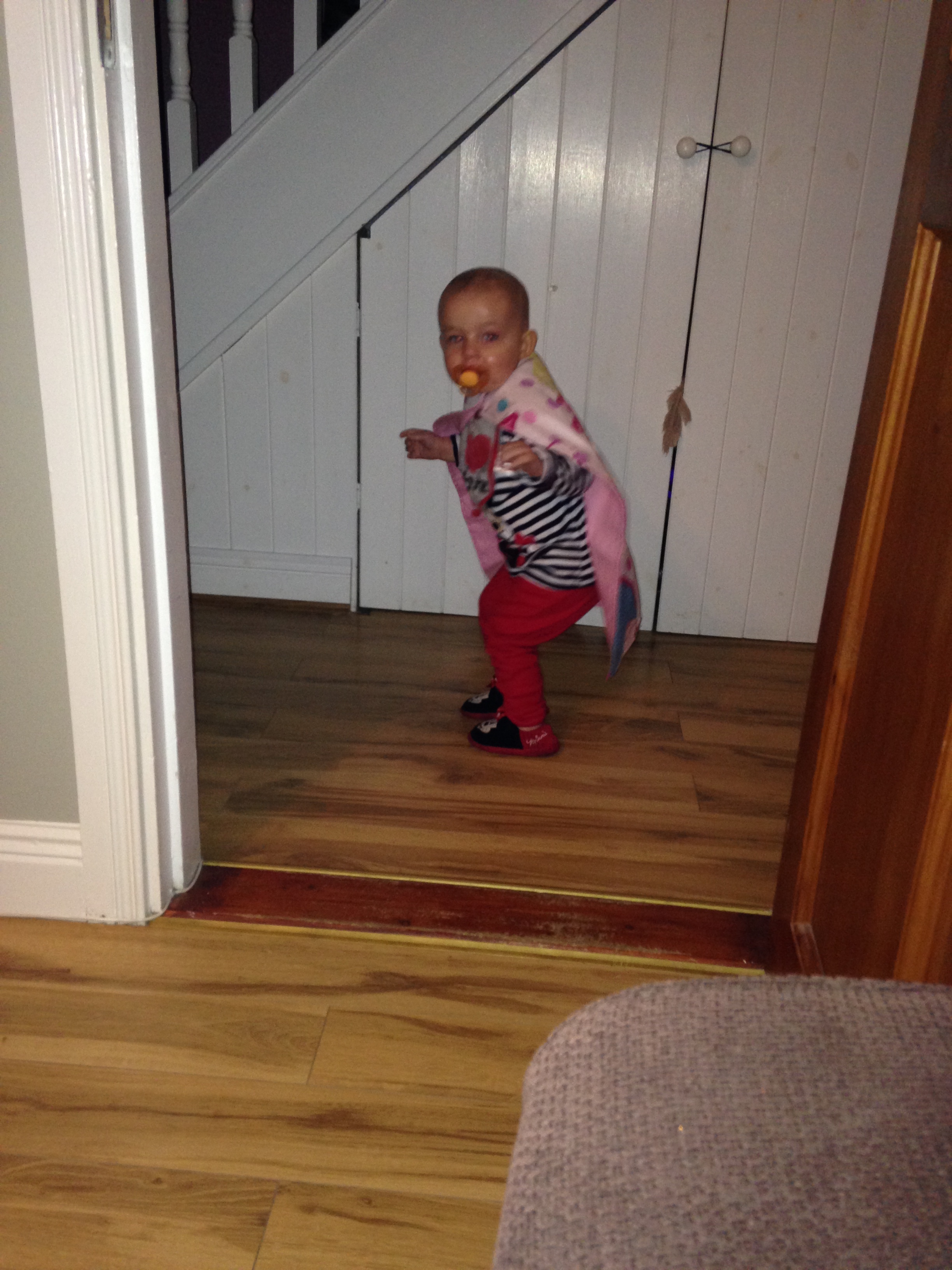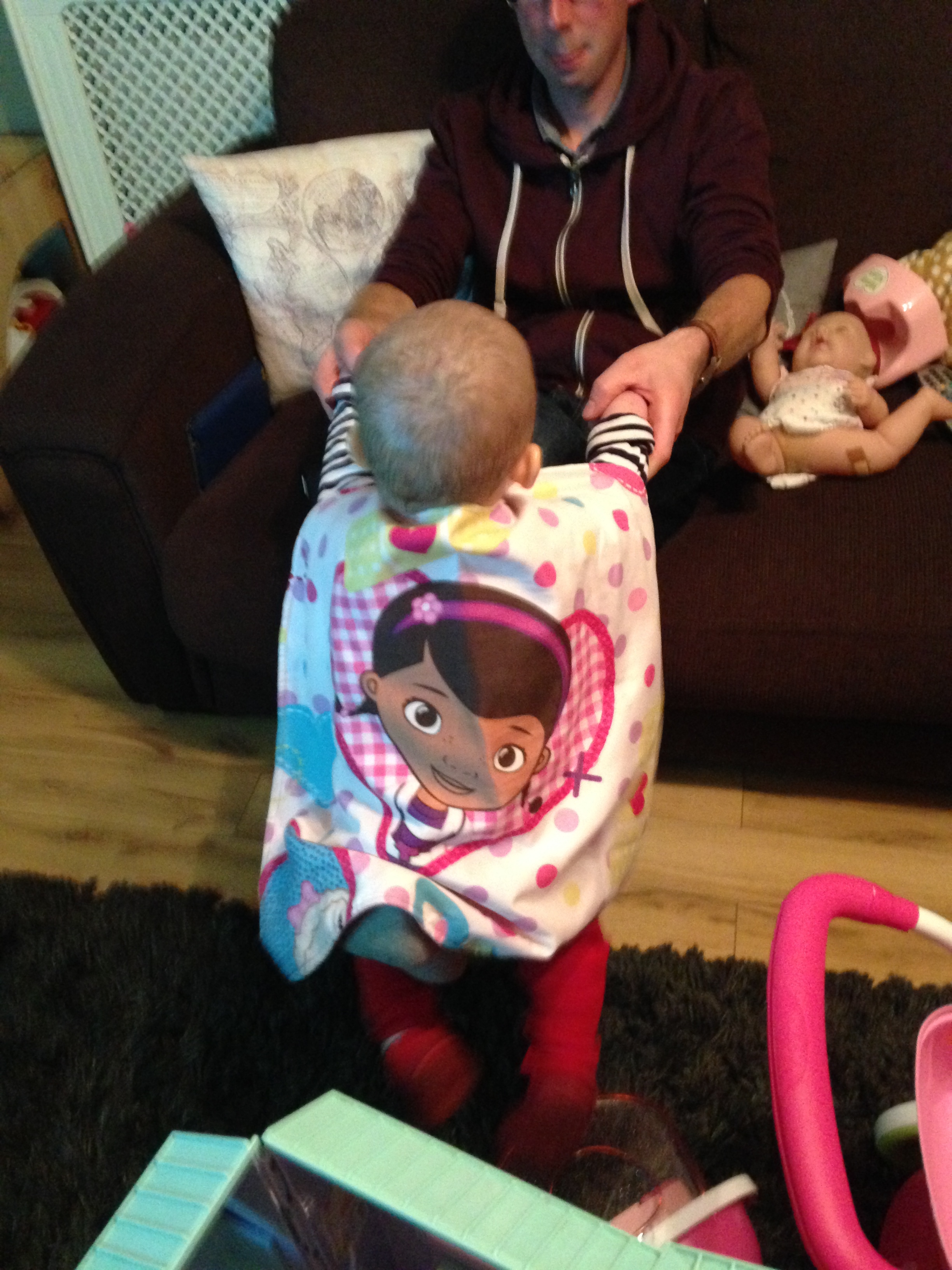Super Alice
At just 15 months old, in December 2013, baby Alice Turner from Drogheda was admitted to Our Lady of Lourdes Hospital for some tests after a routine check-up raised some concerns. An ultrasound showed she had a tumour on her kidney. Alice’s parents, Lyndsey and Paul Turner, went from having a perfectly healthy and active child to being faced with a potential diagnosis of cancer. As Alice’s Mum Lyndsey put it, “Nothing can prepare you for this and no words can describe how you feel, but denial and shock are probably the closest”.
Alice was quickly transferred to Our Lady’s Hospital for Sick Children in Crumlin and a CT scan confirmed that there was a tumour the size of a grapefruit on Alice’s left adrenal gland above her kidney. She had surgery two days later to remove the tumour. While the surgeon was confident that he had removed the entire tumour, Alice’s parents would need to wait an anxious few days for the results of a biopsy to be returned. On the 30th of December Lyndsey and Paul received the awful news that Alice had been diagnosed with High Risk Neuroblastoma.
WHAT IS NEUROBLASTOMA?
Neuroblastoma is a rare cancer that affects the sympathetic nervous system. Children diagnosed with Neuroblastoma are usually younger than 5 years old and only about 10 cases are diagnosed in Ireland every year. High-risk Neuroblastoma is even harder to cure and is more likely to become resistant to standard therapies or to come back after seemingly initial successful treatment.
ALICE’S TREATMENT
Alice started 18 months of intensive treatment in early January 2014. The treatment includes 8 rounds of rapid induction chemotherapy every ten days, followed by high dose chemotherapy and a stem cell transplant, radiotherapy, differentiation treatment and immunotherapy. This treatment will likely make Alice very ill and comes with potential serious long term side effects. Although the cancer had not spread past the tumour site the tumour cells show a genetic abnormality called N-MYC Amplification which means her disease is very aggressive and could spread and be terminal if left untreated.
Although Alice may be declared in remission after this aggressive treatment, the likelihood of the cancer returning is very high and notwithstanding the excellent treatment for this first phase of the disease in Crumlin, relapsed Neuroblastoma has limited treatment options in Ireland. Thankfully there are new clinical trials in America and Europe to both try and prevent a relapse and to potentially treat relapsed Neuroblastoma. These treatments can cost hundreds of thousands of dollars but they could be Alice’s best chance for a future.
Lyndsey and Paul have already been in touch with one of the hospitals in the U.S. that such run clinical trials to treat Neuroblastoma and they hope to enrol Alice on a suitable programme once she is finished her 18 months of initial treatment under the excellent care of the staff in the Oncology unit in Our Lady’s in Crumlin.
A CHANCE FOR ALICE
Alice’s families and friends have launched the “A Chance for Alice” campaign to raise funds for the initial two year treatment programme. The campaign has already captured the public imagination and is off to an encouraging start but needs all the support it can get.
According to Alice’s Mum and Dad,
“Alice is a very social and active toddler and loves life. She loves going to the playground, looking after her dolly and playing peekaboo. She loves the characters Peppa Pig, Doc McStuffins, Mickey Mouse and absolutely anything to do with horses. She is horsey mad! Just like every little girl her age Alice just wants to play, laugh and have fun as she discovers the world around her. She deserves a chance”.
CAN YOU HELP?
If you would like to donate to the “A Chance for Alice” fund please click on the “donate” button on the WEBSITE which gives you a number of donation options.





